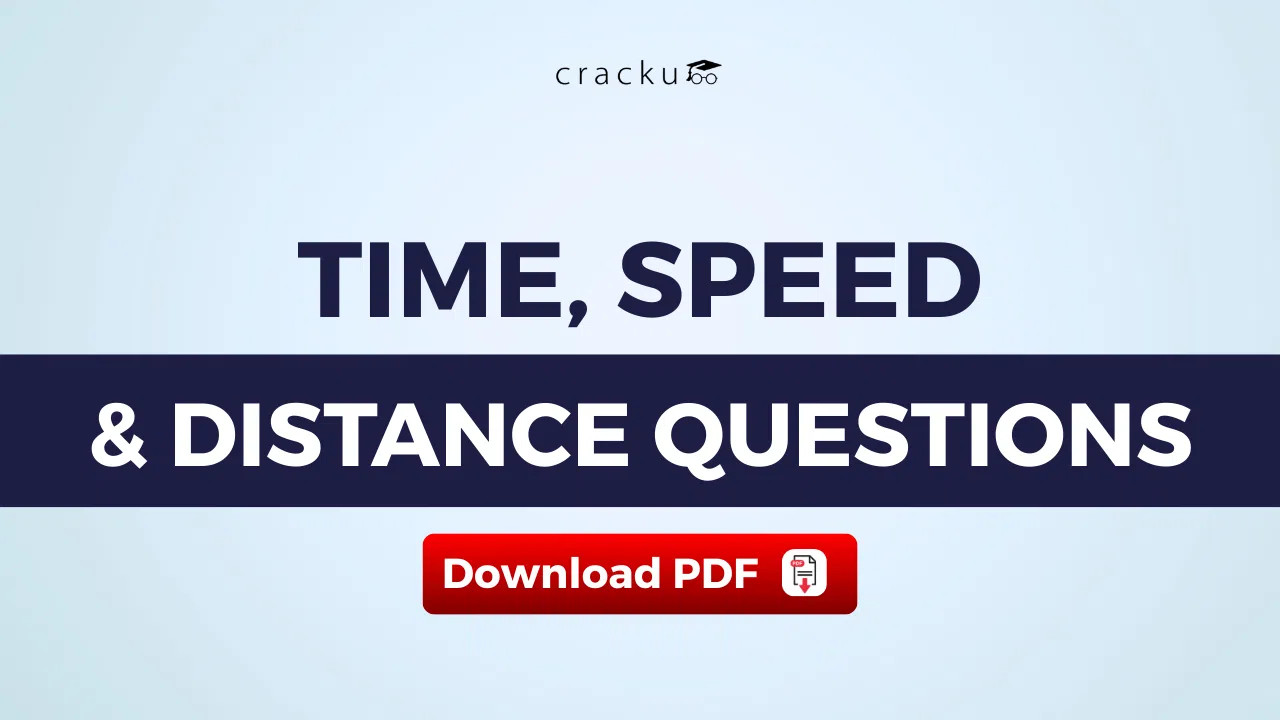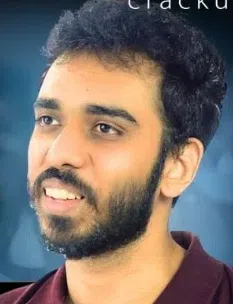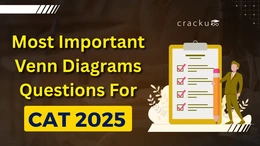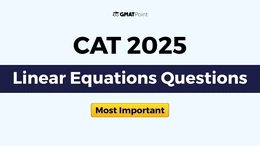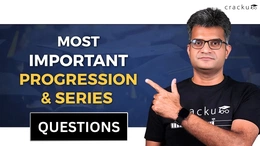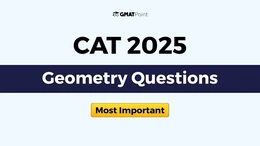Speed, Distance & Time Questions for CAT 2025
Speed, Distance & Time is one of the most important and high-scoring topics in the CAT Quant section. If you're preparing for CAT 2025, understanding this concept well can really boost your score. The questions are usually easy to moderate, but they require quick thinking and a clear understanding of how speed, time, and distance are connected. You’ll often see problems based on trains, races, boats, or chase situations, which test both your math and logical skills.
To help you prepare better, we’ve created a Speed, Distance & Time Questions for CAT 2025 with Solutions PDF. It includes 30 carefully selected CAT-level questions, each with step-by-step solutions. Whether you're practicing basic speed problems or more complex ones like relative speed, this PDF is perfect for daily practice and quick revision before the exam.
CAT Speed, Distance & Time Important Formulas
Formulas make solving Speed, Distance & Time questions in CAT 2025 faster and easier. They help you avoid mistakes, especially in tricky problems like relative speed or average speed. To help you revise better, we’ve listed all the important formulas in one place. Download the Speed, Distance & Time Formula PDF for CAT 2025 here
CAT Time, Speed, Distance and Work Formula PDF
Here are some must-know formulas:
| Concept | Formula |
|---|---|
| Basic Speed Formula | Speed = Distance / Time |
| Time Calculation | Time = Distance / Speed |
| Distance Calculation | Distance = Speed × Time |
| Relative Speed (same direction) | Speed = (Speed₁ - Speed₂) |
| Relative Speed (opposite direction) | Speed = (Speed₁ + Speed₂) |
| Average Speed | Total Distance / Total Time |
| Boats and Streams (Upstream) | Speed = Boat Speed - Stream Speed |
| Boats and Streams (Downstream) | Speed = Boat Speed + Stream Speed |
Types of Speed, Distance & Time Questions in CAT
The CAT exam tests Speed, Distance & Time concepts in many creative ways. Understanding the types of questions can help you prepare more effectively. Here’s a quick look at the most common types:
Train-Based Problems
These involve calculating how long a train takes to pass a platform, pole, or another train. Focus on understanding how length and relative speed affect time.
Chase and Catch-Up Problems
Examples include a thief running ahead and a policeman chasing. These problems are great for testing relative speed logic.
Races and Head Starts
These often test how one participant overtakes another, or wins a race by a certain margin.
Boats and Streams
You’ll need to apply concepts of upstream and downstream speed here. These problems require strong conceptual clarity.
Average Speed Problems
These usually seem easy but can be tricky. Be careful not to average speeds without considering the total distance and time.
Motion in Opposite/Same Directions
This comes up a lot in train or walking problems. Knowing how to apply relative speed is key.
Each of these types is covered with examples and full solutions in our downloadable PDF, making it easier for you to practice and improve.
Most Important CAT Speed, Distance & Time Questions
Question 1
Two cyclists, Jack and Emily, start from the same point on a circular track of 66 kms and cycle in opposite directions. Jack cycles at a speed of 18 km/h, while Emily cycles at a speed of 12 km/h. If Emily starts 30 minutes before Jack, what is the total distance she covers before she meets Jack?
correct answer:- 2
Question 2
A train of length 150 m is travelling at a speed of 72kmph. It passes through a tunnel of length 850m. By the time the train enters the tunnel, a boy at the back end of the train starts running towards the first compartment. He waits for 5 seconds in the first compartment and returns to the last compartment. By the time he reaches the last compartment, the train just crosses the tunnel completely. Find the speed of the boy(in m/s).
correct answer:- 3
Question 3
A bus started from a place P at speed 40kmph. After 3 hours, a bike and car start in the direction of the bus at 100kmph and 60kmph. Once the bike meets the bus, it reveres the direction and travels towards the car. After meeting the car, it reverses the direction again and travels towards the bus. The same process is followed until the car meets the bus. What is the total distance travelled by the bike?
correct answer:- 4
Question 4
A boatcovers 64 km upstream in 8 hours and 120 km downstream in 12 hours. Whatis the speed (in m/s)ofthe boat in still water
correct answer:- 1
Question 5
There are 4 stations in between A and B. A train starts travelling from A towards B at 30kmph. It does not stop at any intermediate station and takes one hour to complete the journey. During the return journey, if the train has to stop at each of the intermediate stations for 3 min each, what is the speed with which it travels during the return journey so that the average train speed for the whole journey (from A to B and B to A) is 40 kmph?
correct answer:- 4
Question 6
A mall has 2 same-length escalators connecting the ground floor and the first floor. The first one goes up from the ground floor and the second one down from the first floor. The ratio of their speeds is 4:5. Shyam gets on the escalator from the ground floor and moves up at a constant speed. It takes him $$t_1$$ time to reach the top. After which he got on the second escalator and walked down at the same speed. It took him time $$t_2$$. If $$t_1 : t_2 $$ = 6:5. What is the ratio of the speed of Shyam to the speed of the first escalator.
correct answer:- 2
Question 7
Abhay and Mukesh started at the same time from point A and reached point B, which is 150 km away, at the same time. Both Abhay and Mukesh drive at constant speeds, but they take breaks during the journey. Abhay is driving at speed V and stops for 3 minutes at the end of every 5 km, while Mukesh is driving at a speed of 3V/2 and stops for 2 minutes at the end of every 3 km. Find the time (in minutes) each of them took to reach point B from point A.
correct answer:- 2
Question 8
Two buses A and B start from city X and travel towards city Y. The speed of A is 60 kmph and the speed of B is 100 kmph. The distance between X and Y is 500 km. As soon as a bus reaches city Y, it starts back towards city X, and as soon as a bus reaches city X, it starts its journey towards city Y. This process continues till the bus B makes 2 trips between X and Y and 2 trips between Y and X. How many times do the two buses meet each other while travelling in opposite directions?
correct answer:- 2
Question 9
Krushna and Sudesh are travelling at 54 and 72 km per hour towards each other. What is the distance (in metres) between them 30 seconds just before they meet each other? It is known that they were 3000 metres apart at the beginning.
correct answer:- 1050
Question 10
Three cars Car1, Car2 & Car3 race on a circular track from the same starting point. When Car 1 completes 2 rounds, Car 2 completes 3 rounds whereas when Car 2 completes 1 round, Car 3 completes 2 rounds. What is the number of times does all the cars meet at the starting point till the Car 3 completes 50 rounds?
correct answer:- 1
